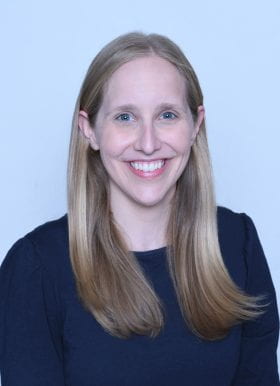
Regina Triplett, MD, MS
Instructor
- Phone: 314-454-6120
- Email: rtriplett@nospam.wustl.edu
Regina Triplett is a practicing child neurologist with a specialization in epilepsy and EEG. She sees children with epilepsy and related disorders in the hospital and in the clinic. In 2015, she completed her medical degree and a master’s degree in clinical research at the University of Pittsburgh, PA. She then came to Washington University in St. Louis for her child neurology residency and epilepsy fellowship training. She has been conducting research with the WUNDER lab since 2017. Her work is focused on using multimodal MRI and EEG techniques to study healthy and disrupted neurodevelopment in infants with a range of risk factors. She plans to use MRI and EEG to better understand how seizures and epilepsy develop and to design and run clinical trials to treat or prevent epilepsy.

Tara Shepherd, MD, MS
Neonatology Fellow
- Email: tara.s@nospam.wustl.edu
Tara is a second year Neonatal-Perinatal Medicine fellow in the Department of Pediatrics. As part of her fellowship training Tara is involved in qualitative research with the WUNDER team. Tara completed her Pediatric residency at Tulane University School of Medicine. She also has a Master of Science degree in Mechanical Engineering.
Post-Doctoral Scholars
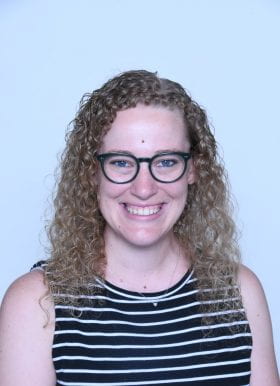
Ashley Nielsen, BS, PhD
Post-Doctoral Research Scholar
Ashley Nielsen is a Postdoctoral Research Scholar in the Department of Neurology investigating how early life adversity impacts brain maturation in infants and toddlers. Brain development is immensely complex. Ashley’s work has been devoted to appreciating and interrogating the complex interactions across the brain the support the emergence of behavioral capacities throughout development and considering the influence of environment and experience on this maturation. Ashley studies the infant brain using functional connectivity MRI, multivariate machine learning, and other neuroimaging tools and statistical techniques in order to disentangle the complex relationship between the brain, behavior, and environment in early life. Ashley received her PhD in Neuroscience from Washington University in St. Louis.
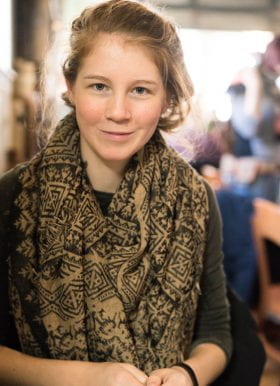
Ursula A. Tooley, PhD
Postdoctoral Research Scholar
- Email: tooley@nospam.wustl.edu
Ursula Tooley is a postdoctoral research scholar at Washington University in St. Louis and joined the WUNDER lab in November 2022. Her research examines brain network development in neonates and toddlers, with a focus on the pace of brain maturation and how neuroplasticity changes across development. She received her Ph.D. in Neuroscience in 2022 from the University of Pennsylvania, under the direction of Dr. Allyson Mackey and Dr. Dani Bassett, where she studied functional brain network development in children and adolescents. She received her B.S. in Neuroscience from the University of Arizona, where she conducted research on sleep disruption in children with Down syndrome. Her many hobbies include traveling, being outside (hiking, biking, camping, gardening), reading, and dancing.
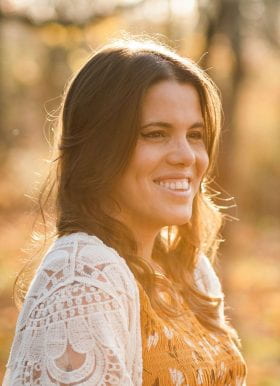
Berenice Anaya, PhD
Postdoctoral Research Associate
- Email: anayab@nospam.wustl.edu
Berenice is a Postdoctoral Research Associate in the Department of Psychiatry and joined the WUNDER Lab team this past January. Berenice’s research interests are at the intersection of infant neurodevelopment, emotion regulation, infant temperament, and caregiver mental health. Berenice is a 2020 D-SPAN Scholar, an NINDS grant that funded her predoctoral work and has now transition into a K00 to fund a 4-year continuation of her neuroscience research into the postdoctoral phase. During her doctoral training, she investigated infant developmental trajectories of EEG delta-beta coupling and functional-network connectivity – neural measures that have been associated with regulation in adults. As part of her new work with the WUNDER team, Berenice is investigating developmental trajectories of socioemotional competence in infants born very premature, while also examining the role of neural functional and structural organization as well as caregiver-child interactions. Berenice received a B.A. (2014) and a M.S. in Psychology (2016) from Western Kentucky University, and a PhD from The Pennsylvania State University. Berenice is passionate about diversity, equity, and inclusion in academia, and is dedicated to training and mentoring students from minoritized and disadvantaged backgrounds. In her spare time, Berenice enjoys traveling, music, water color, and dancing!
Students
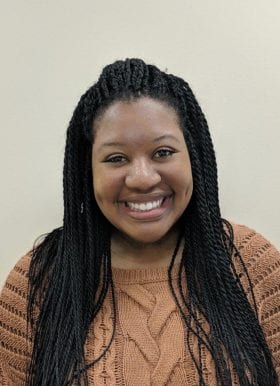
Shelby Leverett, MS
Neurosciences PhD Student
- Email: leverett.s@nospam.wustl.edu
Shelby is a 2nd year PhD student in the Neurosciences Program at Washington University in St. Louis. She is interested in understanding how prenatal experiences influence early brain development and subsequent neurodevelopmental trajectories. She is very interested in understanding the biological mechanisms through which prenatal environments imprint on the developing brain and in attending to the ways that variability in early brain development maps onto variability in later behavior. Shelby received her B.S. in Psychology from Duke University in 2015, and her M.S. in Cognitive Neuroscience from University of Texas at Dallas in 2019. Outside of the lab, she enjoys yoga, cooking, traveling, and spending time with friends and family.
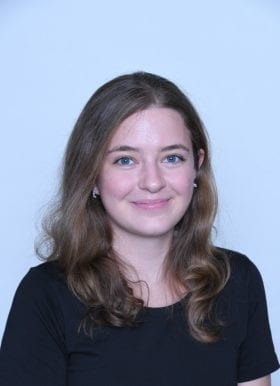
Rachel Butler , BA
MD/MPHS Candidate
Rachel Butler is an MD and Master of Population Health Sciences candidate at Washington University in St. Louis. She plans to apply into child neurology residency in 2024. As part of the WUNDER lab, she is studying how prenatal factors including maternal disadvantage and maternal microbiome composition interact and impact structural brain connectivity in children. Rachel earned her B.A. at Washington University where she majored in Comparative Literature with minors in Psychology and Spanish.
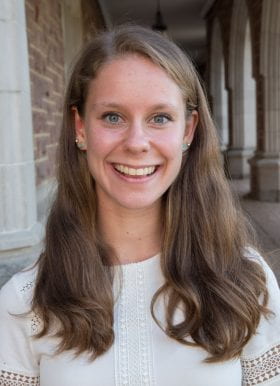
Lisa Gorham, BA
MD/PhD Candidate
- Email: lisa.gorham@nospam.wustl.edu
Lisa is a 3rd year MD/PhD Candidate who started with the WUNDER lab in February 2023. She is interested in using innovative tools to model trajectories of brain development in babies and young children, as well as studying how various factors, such as prematurity and poverty, impact these developmental trajectories. Additionally, she is interested in the identification of early risk factors for psychiatric disorders, and using neuroscience to inform personalized interventions. Clinically, she is interested in going into child psychiatry or pediatrics and plans on using her research training to discover novel treatments for psychiatric disorders as well as to design community interventions that help reduce health disparities. Previously, she received her B.A. in Cognitive Neuroscience from Washington University in St. Louis in 2019, and then spent two years working as a post-bac fellow at the National Institute of Mental Health. Outside of the lab, she enjoys cooking, running, volunteering, and spending time with friends and family.